AOM Press Releases
AOM Scholars On… The Business Case for Investing in our Planet
Watch the recording of AOM Subject Matter Experts' special Earth Day panel!
19 April 2023
In relation to Earth Day, this panel provides research-based actionable insights on how the business world (organizations, leaders, employees) and private actors can be solutions to the world’s environmental and climate change challenges via sustainability innovation and actions.
Joerg Hofstetter, professor in Supply Chain Management at KEDGE Business School and president of the International Forum on Sustainable Value Chains (ISVC), moderated a discussion among panelists Stephen Cummings of Victoria University of Wellington, Andrew Hoffman of the University of Michigan, Sophie Bacq of Indiana University and Antonia Wanner, Group Head of ESG at Nestlé on how the business world and private actors can be solutions to the planet’s environmental and climate change challenges via sustainability innovation and actions as part of AOM’s scholar-led webinar series, “AOM Scholars On…,” on 19 April 2023.
Panelists engaged in a rich discussion, sharing their insights and expertise on creating a beneficial partnership between academia and the business professionals that jointly invest in our planet. During their discussion, AOM scholars focused largely on interdisciplinary learning and bridging generational gaps to catalyze sustainability efforts. They agreed that emerging generations are introducing curiosity and challenges that, when paired with the expertise and guidance from the current generation, show promise in actively investing in the planet.
This panel is AOM’s eight Subject Matter Expert Panel in the “AOM Scholars On…” series that provides actionable, research-based insights to the most pressing issues facing organizations and workers globally.
Research-based Insights
- AOM scholar Stephen Cummings has found that indigenous thinking is extremely important for today’s sustainability goals. He shared insights from indigenous communities, such as in the Pacific Islands, where generations continue to collaborate in their efforts to achieve their goals and build upon each other, recognizing that sustainability is not a problem for one generation or another – it’s about how we work together.
- AOM scholars Andrew Hoffman and Sophie Bacq agreed: we can have a real impact in the classroom. Interdisciplinarity bringing together a variety of diverse viewpoints and generations, both in the classroom and in academic publishing, will do us a great service. Students are hungry for different ways for thinking about businesses and are bringing real life experiences and aspirations to their studies which can have a positive impact on the planet. Partnering with our students and other disciplines is the best way to start to address the challenges that we are experiencing in the climate today. As Sophie Bacq shared, separation is not doing us a service.
- Answering the question, "How can practitioners and academia partner together to address these challenges?", Group Head of ESG at Nestle, Antonia Wanner, says this requires someone with courage and foresight, which are the qualities of a good leader. There are also valuable lessons we can learn by looking back at how we have done things in the past.
Panel Soundbites:
- Antonia Wanner on packaging sustainability: “Let’s go forward by looking back.”
- Stephen Cummings: “What is the purpose of the firm? Of management and the business? We have come to assume that it’s based on ROI, but my research is looking at indigenous management approaches. They have very sophisticated systems of managing in a balance—not avoiding economic realities, but seeing those in balance with social, environmental and cultural values and measures.”
- Andrew Hoffman: “We need to think about where we can have real impact, and that’s in the classroom.”
- Sophie Bacq: "New talent comes in for specific positions, but on top of that they have this individual purpose that they want to fulfill. That is the seed of change—bringing these people into the organization will push the boundaries of the organization by asking different questions."
- Joerg Hofstetter: "It is essential to understand that we have different paths, private and business lives, and have respect for these different roles. Collaboration should evolve into co-creation—moving beyond just having multiple stakeholders but actually working with those stakeholders hand in hand."
Panel Moderator
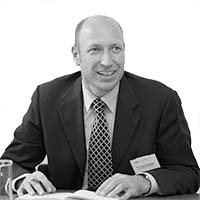
Joerg Hofstetter, Kedge Business School
Joerg S. Hofstetter, an academic expert in circular economy, corporate sustainability, global value chains, and multinational, multi-tier supply chains with over 20 years of experience, is a professor in Supply Chain Management at KEDGE Business School, Head of its lab “Sustainable Supply Chains”, president of the International Forum on Sustainable Value Chains (ISVC), lecturer at the University of St. Gallen, and fellow of the Center for Organization Research & Design (CORD) at Arizona State University. He consulted various national government and intergovernmental organizations (including the OECD, the World Bank Group, the UN) as well as over 200 private and public companies across different industries, and is non-executive board member in the private sector.
Joerg is a founding member of the GRONEN Foundation, a member of Future Earth’s Working Groups on Circular Economy and Global Value Chains, a member of the Green Growth Knowledge Platform’s Trade & Competitiveness Research Committee, involved in several UNIDO working groups, and acts as Ambassador of the Sustainable Procurement Pledge. Previously, he served at the University of St. Gallen as Vice Director of its Chair of Logistics Management and Assistant Professor of Management, at Lufthansa Cargo in Singapore and at ITT Automotive in Detroit.
A German national, Joerg has extensive knowledge in circular economy, sustainability in multinational multi-tier supply chains, sustainability in procurement, global value chains, value chain mapping, sub-supplier management, supplier development, distribution management, and corporate supply chain management. He received several substantial public and private research grants, and works internationally with both the public and the private sector.
Under his leadership, the International Forum on Sustainable Value Chains (ISVC), a Switzerland based non-profit association, has become a recognized academia-led platform with members from different parts of the world and sectors developing and implementing scientifically proven, hands-on solutions to master the many sustainability challenges in today’s global value chains. www.susvc.org
Panelists
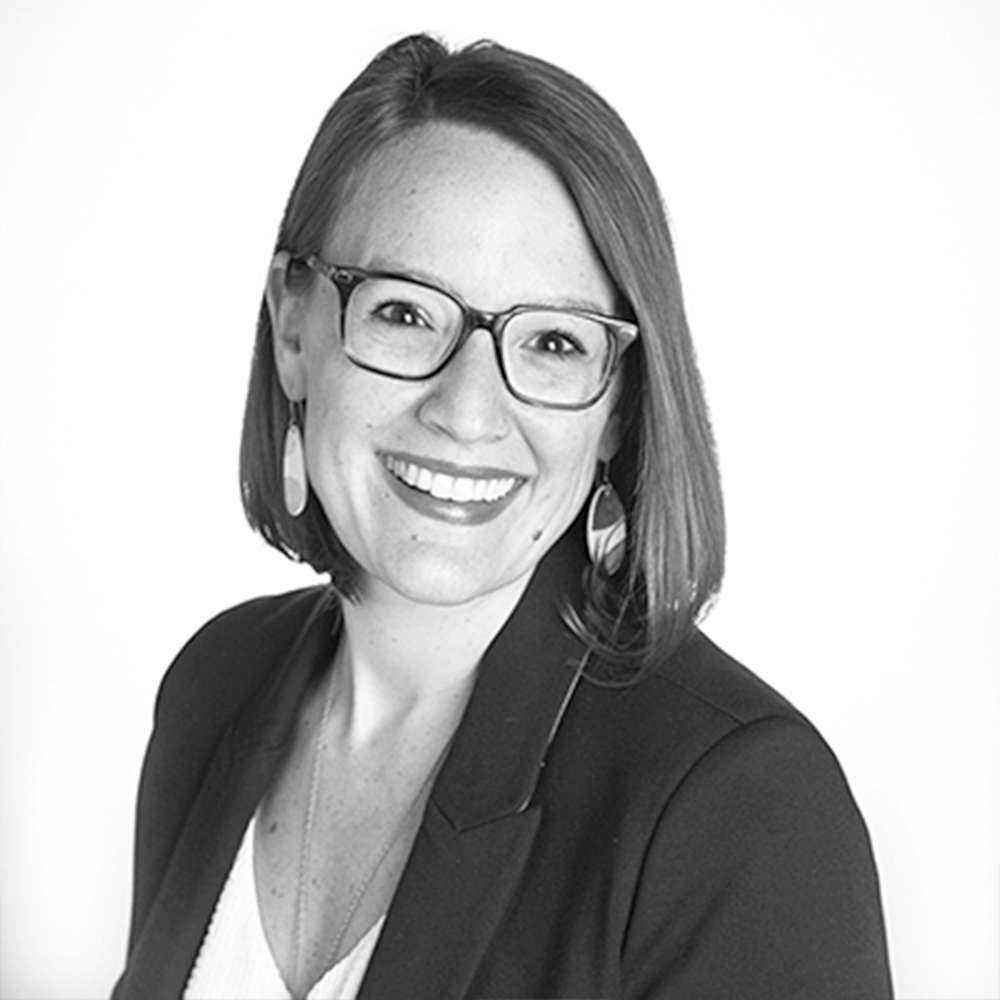
Sophie Bacq is the Larry and Barbara Sharpf Professor of Entrepreneurship at the Kelley School of Business at Indiana University. Her research focuses on social entrepreneurship, societal impact, organizational social performance and civic wealth. Her award-winning scholarship has earned her the Academy of Management Perspectives 2020 Best Article Award for Civic Wealth Creation: A New View of Stakeholder Engagement and Societal Impact and the Emerald Literati Network Award for Excellence: Highly Commended paper for In pursuit of blended value in social entrepreneurial ventures: An empirical investigation.
Sophie has been invited as a keynote speaker at conferences around the world, including the International Social Innovation Research Conference (ISIRC), the European university Network on Entrepreneurship (ESU), and the Canadian Council for Small Business and Entrepreneurship. She has published research in both English and French and contributes to scholarship in the United States as well as in Europe. Sophie also serves as a Field Editor for the Journal of Business Venturing and is a member of the Editorial Review Boards of the Academy of Management Journal, Entrepreneurship: Theory & Practice, and Journal of Management. She is a representative-at-large for the Entrepreneurship Division at AOM, the co-Director of The Annual Social Entrepreneurship Conference, and co-teacher faculty of the Annual Social Entrepreneurship Doctoral Seminar.
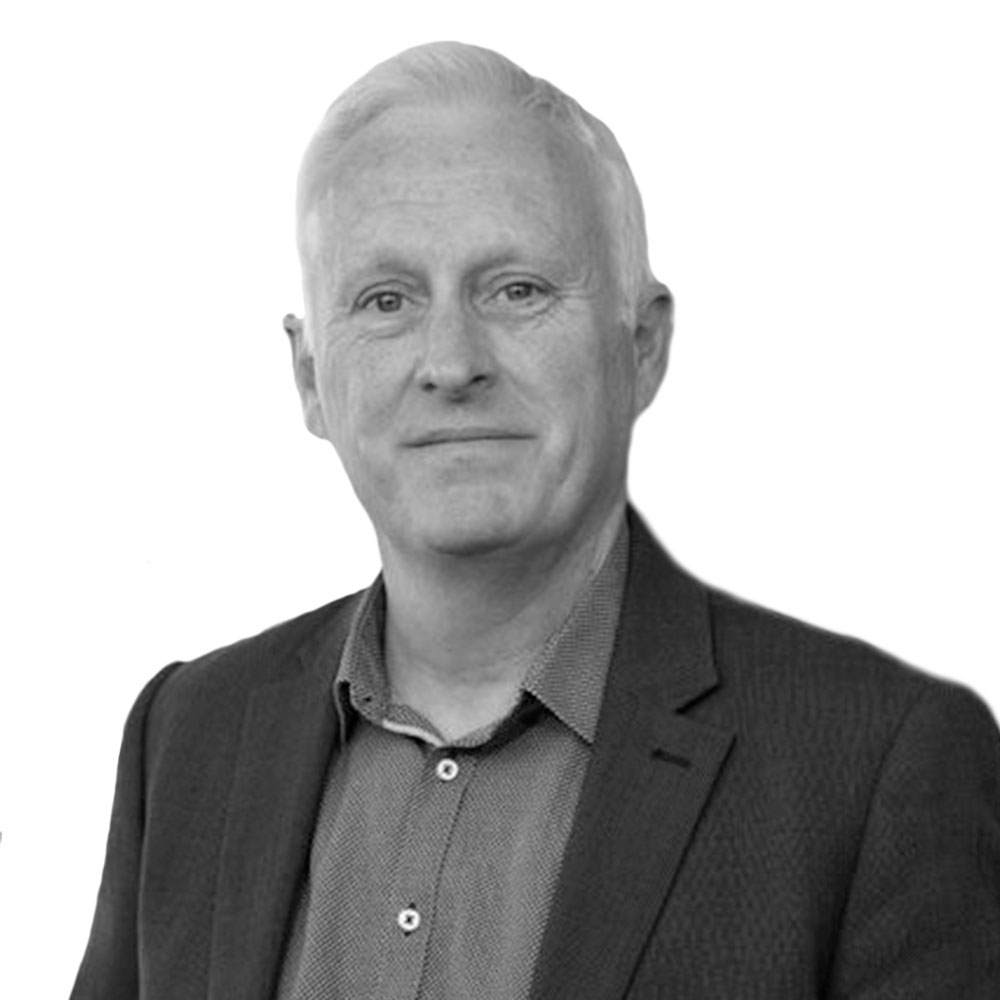
Stephen Cummings is Professor of Strategy and Innovation and Director of The Atom/Te Kahu o Te Ao Innovation Space at Victoria University of Wellington, New Zealand. His research focuses on how historical assumptions can limit innovation and creativity and has co-authored 11 books on this theme, including The Past, Present and Future of Sustainable Management (Palgrave, 2021), and A New History of Management (Cambridge University Press, 2017).
Stephen has been awarded 'best paper' prizes at the Academy of Management in 2008, 2014 and 2015, and AMLE ‘article of year’ awards in 2017 and 2020. His article Unfreezing change as three steps, in Human Relations (with Todd Bridgman and Kenneth Brown) has been downloaded over 300,000 times. The YouTube channel A New History of Management contains animations that summarize his and his collaborators’ research.
Stephen has taught all over the world and in 2009 was awarded 'Outstanding MBA Teacher' at Warwick Business School. He is the current Past Division Chair of the AOM Critical Management Studies Division and has been widely engaged in advisory work and is an Academic Fellow of the International Council of Management Consulting Institutes. In addition, Stephen has developed executive courses for a range of public and private sector organizations, including Philips, HSBC, The Financial Times, The Commerce Commission, and Prudential.
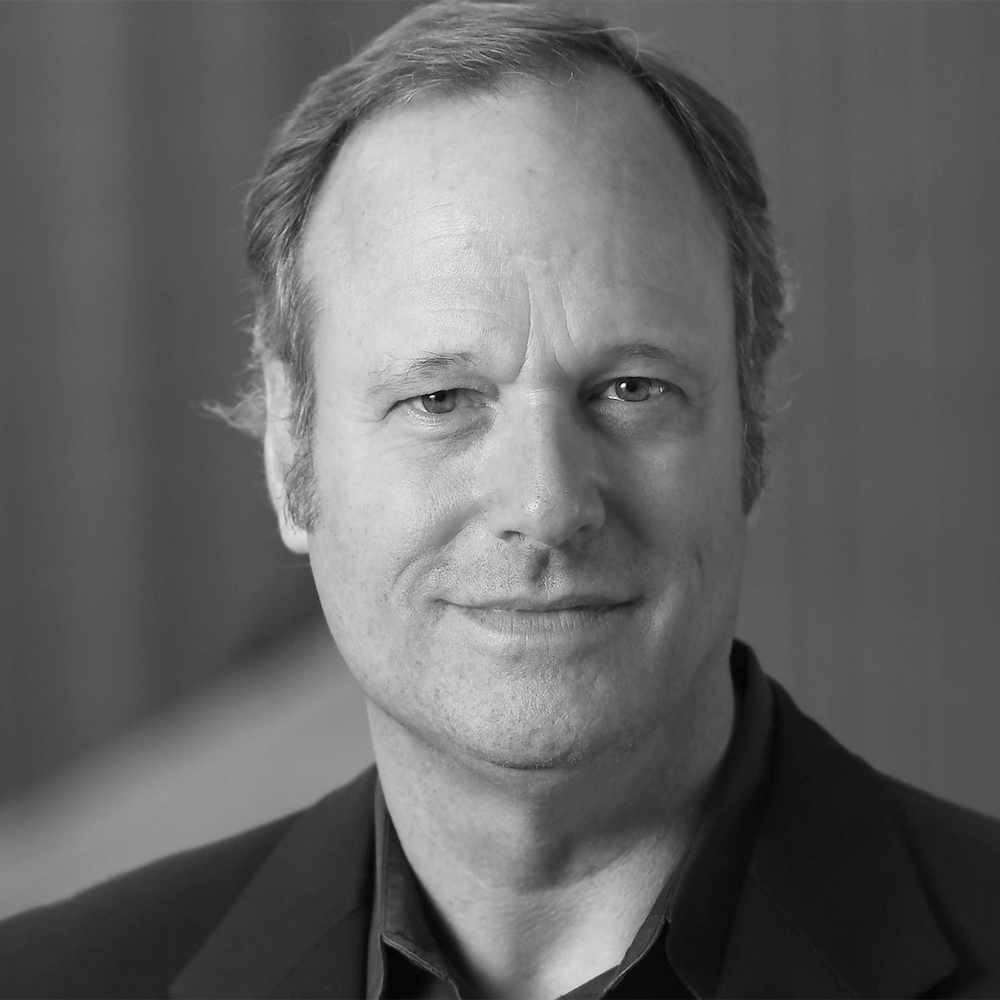
Andrew Hoffman, University of Michigan
Andrew (Andy) Hoffman is the Holcim (US) Professor of Sustainable Enterprise at the University of Michigan; a position that holds joint appointments in the Stephen M. Ross School of Business and the School for Environment and Sustainability.
Andy's research uses organizational behavior models and theories to understand the cultural and institutional aspects of environmental issues for organizations. He has published over 100 articles/book chapters, as well as 18 books, which have been translated into six languages. In this work, he focuses on the processes by which environmental issues both emerge and evolve as social, political, and managerial issues, including: the evolving nature of field level pressures related to environmental issues; the corporate responses that have emerged as a result of those pressures, particularly around the issue of climate change; the interconnected networks among non-governmental organizations and corporations and how those networks influence change processes within cultural and institutional systems; the social and psychological barriers to these change processes; and the underlying cultural values that are engaged when these barriers are overcome. He also writes about the role of academic scholars in public and political discourse.
Among his list of honors, Andy has been awarded the ONE Teaching Award (2020), Page Prize for Sustainability Issues in Business Curricula (2020), Responsible Research in Management Award (2019), Distinguished Faculty Award for the Organizations & Natural Environment Division of the Academy of Management (2018), Aspen Institute Ideas Worth Teaching Award (2018), Aspen Institute Faculty Pioneer Award (2016), American Chemical Society National Award (2016), Strategic Organization Best Essay Award (2016), Organization & Environment Best Paper Award (2014), Maggie Award (2013), JMI Breaking the Frame Award (2012), Connecticut Book Award (2011), Aldo Leopold Fellowship (2011), Aspen Environmental Fellowship (2011 and 2009), Manos Page Prize (2009), Aspen Institute Rising Star Award (2003), Rachel Carson Book Prize (2001) and Klegerman Award (1995).
His work has been covered in numerous media outlets, including The New York Times, Scientific American, Time, the Wall Street Journal, National Geographic, Atlantic and National Public Radio. He has served on numerous research committees for the National Academies of Science, the Johnson Foundation, the Climate Group, the China Council for International Cooperation on Environment and Development and the Environmental Defense Fund.
Prior to academics, Andy worked for the US Environmental Protection Agency (Region 1), Metcalf & Eddy Environmental Consultants, T&T Construction & Design and the Amoco Corporation. Andy serves on advisory boards for ecoAmerica, the Michigan League of Conservation Voters, the Widlife Habitat Council, the Center for Environmental Innovation and the Stanford Social Innovation Review.
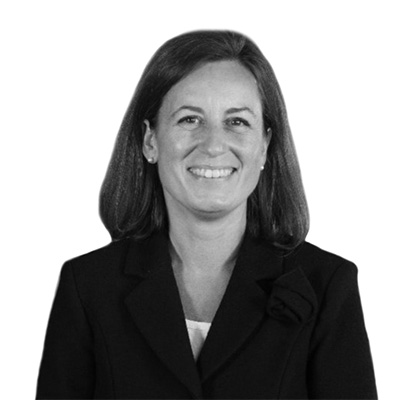
Antonia Wanner, Nestle
Antonia Wanner, Group Head of Environmental, Social, Governance (ESG) Strategy and Deployment at Nestle. In her 20 years of experience in the consumer goods industry, she has led work in procurement, sales, legal, and sustainability at country, regional, and global levels. That work has made her a believer in the critical value that sustainability can generate for the business. ESG work is not without challenges, and she is excited to come together with fellow sustainability professionals across public and private partners to share challenges and possible solutions for a positive impact.